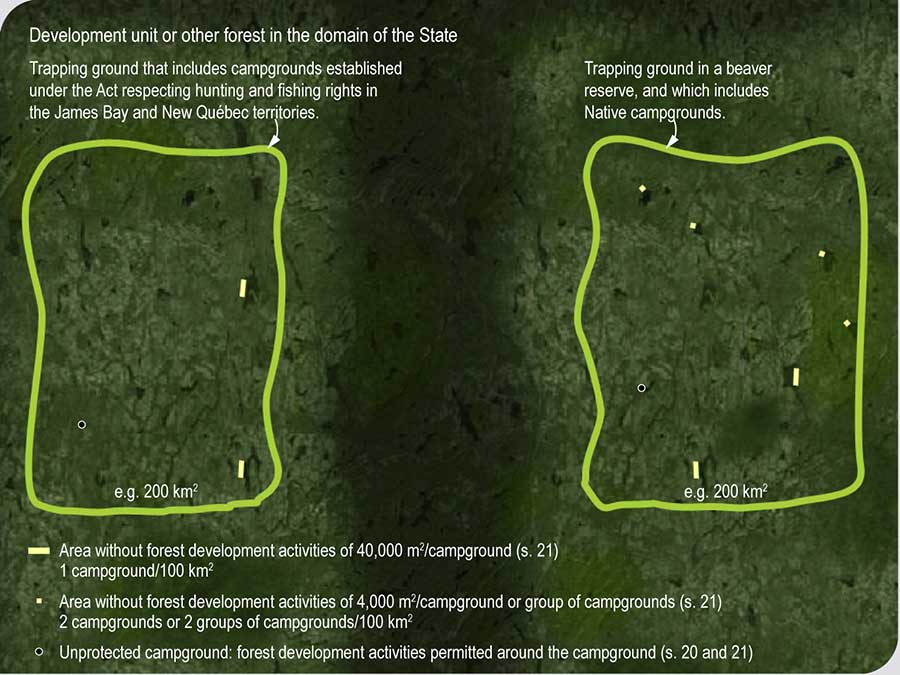Chapter II – Protection of particular places and territories
Division II – Special provisions applicable to Native portage trials, Native campgrounds and Native gathering or sojourn areas
Section 20
Where a campground established under the Act respecting hunting and fishing rights in the James Bay and New Québec territories  (chapter D-13.1) is installed on a trapping ground situated in a development unit or other forest of the domain of the State, no forest development activity may be carried out over an area of 40,000 m2, including the campground area. The foregoing also applies to a Native campground used to trap in a beaver reserve and situated in a development unit or other forest of the domain of the State. This section applies to a campground per 100 km2 of trapping ground.
(chapter D-13.1) is installed on a trapping ground situated in a development unit or other forest of the domain of the State, no forest development activity may be carried out over an area of 40,000 m2, including the campground area. The foregoing also applies to a Native campground used to trap in a beaver reserve and situated in a development unit or other forest of the domain of the State. This section applies to a campground per 100 km2 of trapping ground.
1
Objectives
- To preserve the integrity of a site of particular interest to a Native community
Explanations
On a trapping ground situated in a forest in the domain of the State, forest development activities are prohibited over an area of 40,000 m2 around:
- a campground established under the Act respecting hunting and fishing rights in the James Bay and New Québec territories

- a Native campground situated in a beaver reserve.
Protection is granted to only one campground per 100 km2 of trapping ground. If there is more than one campground per 100 km2 of trapping ground, the trapper may choose which one is protected.
Additional information
It is important to note that the definition of the term “forest development activity” in section 2 of the Regulation means that the standards set out in sections 3, 5, 19 to 22, 47, 50, 52, 54, 55, 57 and 59 do not apply to the repair, maintenance or closure of forest roads or to the control of fires, insect epidemics and cryptogamic diseases. 
Figure 20 Area where forest development activities are prohibited around a campground or group of campgrounds installed on a trapping ground
